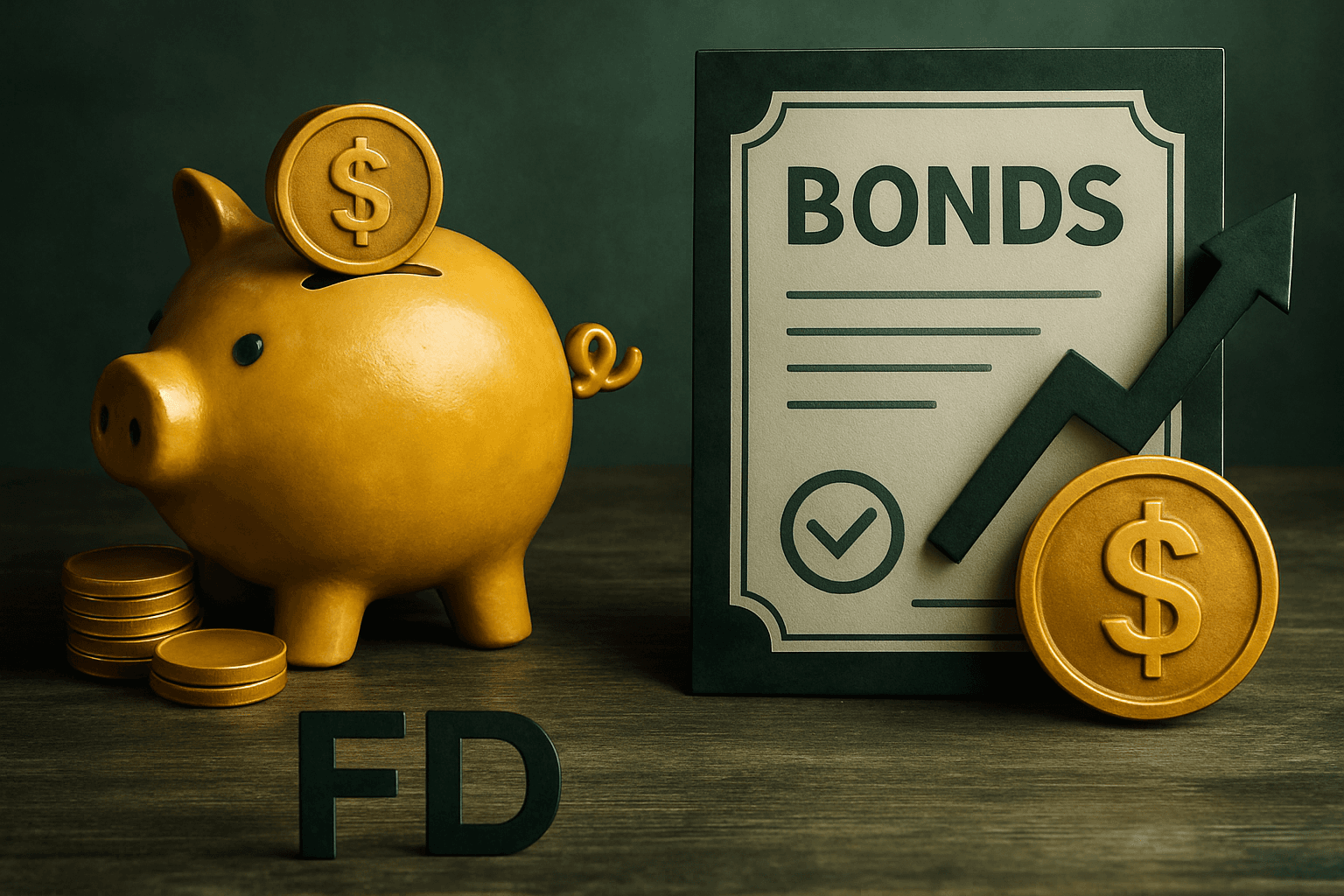FD vs Bonds: Which is better for you?

When it comes to fixed-income investments, the debate between Fixed Deposits (FDs) and Bonds is one that many investors face. Both are considered relatively safe investment options, but they come with different risk-return profiles, liquidity features, and tax implications. Understanding these differences is crucial for making informed investment decisions that align with your financial goals and risk tolerance.
What are Fixed Deposits?
Fixed Deposits are financial instruments offered by banks and Non-Banking Financial Companies (NBFCs) where you deposit a lump sum amount for a predetermined period at a fixed interest rate. The principal amount and interest are guaranteed, making FDs one of the safest investment options available.
Key Features of Fixed Deposits:
- Guaranteed Returns: Interest rates are fixed and guaranteed at the time of investment
- Capital Protection: Principal amount is fully protected (up to ₹5 lakhs per depositor per bank under DICGC insurance)
- Flexible Tenure: Investment periods typically range from 7 days to 10 years
- Premature Withdrawal: Most FDs allow early withdrawal with penalty charges
- Tax Treatment: Interest earned is taxable as per your income tax slab
Understanding Bonds
Bonds are debt securities issued by governments or corporations to raise capital. When you purchase a bond, you're essentially lending money to the issuer for a specified period at a predetermined interest rate (coupon rate). Bonds can be traded in the secondary market before maturity.
Key Features of Bonds:
- Market-Linked Returns: Bond prices fluctuate with interest rate movements
- Tradeable: Can be bought and sold in the secondary market
- Credit Risk: Returns depend on the issuer's creditworthiness
- Variety of Options: Government bonds, corporate bonds, tax-free bonds, etc.
- Tax Benefits: Some bonds offer tax-free interest income
Which Option Should You Choose?
Choose Fixed Deposits if:
- You prioritize capital protection over higher returns
- You prefer guaranteed, predictable returns
- You have a conservative risk appetite
- You don't want to monitor market movements
- You need a simple, hassle-free investment option
Choose Bonds if:
- You can tolerate moderate risk for potentially higher returns
- You want the flexibility to trade before maturity
- You're looking for tax-efficient investment options
- You understand interest rate movements and their impact
- You want to diversify beyond bank deposits
Conclusion
Both Fixed Deposits and Bonds have their place in a well-diversified investment portfolio. The choice between them depends on your risk tolerance, investment goals, liquidity needs, and tax situation. Many financial advisors recommend having a mix of both, with the proportion depending on your individual circumstances.
💡 Pro Tip: Consider laddering your FDs or bonds with different maturity periods to optimize returns while maintaining liquidity. This strategy helps you reinvest at potentially higher rates as each investment matures.
Related Articles

Exploring the concept of digital gold and its significance
Digital gold is revolutionizing how we invest in precious metals. Learn about the benefits, risks, a...
Read More →
Loans against MF – everything you need to know about
Mutual fund loans offer liquidity without selling your investments. Understand the process, benefits...
Read More →